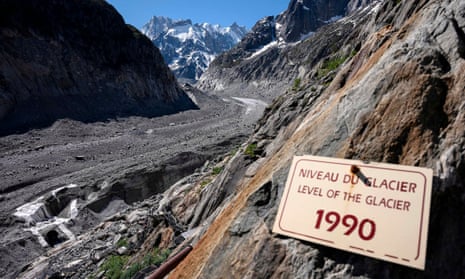It’s hard to see history being made when you’re right in the middle of it – especially when life has our attention spans locked into minutes, days and weeks. But in the midst of a pandemic that understandably focuses our attention on the here and now, a new global movement is rising in the name of long-term thinking and intergenerational justice.
Their target is the tyranny of the now. The politicians who see only as far as the next election. The businesses fixated on their quarterly report. The nations bickering away in international negotiations while the planet burns and species disappear.
This movement recognises a disturbing truth: we have colonised the future. In wealthy countries especially, we treat it like a distant outpost where we can freely dump ecological damage and technological risk – as if there was nobody there.
The tragedy is that the billions upon billions of people who will inhabit the future can do nothing about it. They have no power at the ballot box or in the marketplace. Their voices are silenced and deserve to be heard, not just because they outweigh everyone alive today in sheer numbers but because never have our actions had such potentially dangerous consequences for the coming generations, from the carbon we pump into the sky to the risks of artificial intelligence.
The good news is that this is all beginning to change. The organisation Our Children’s Trust has filed a landmark case against the US government on behalf of 21 young people campaigning for the legal right to a safe climate and healthy atmosphere for both current and future generations. Their David-versus-Goliath struggle has already inspired groundbreaking lawsuits worldwide, from Uganda to the Netherlands.
In Europe, six youth campaigners have taken 33 countries – including the UK – to the European court of human rights for failing to take action on the climate emergency. Such cases, fought on behalf of tomorrow’s citizens, mark a turning point in the long struggle for democratic rights.
There is compelling evidence that citizens’ assemblies – which have been so successful in Ireland and elsewhere – are better at taking the long view than politicians driven by the 24/7 news cycle. The approach has been adopted for Scotland’s climate assembly, which is due to report to the Scottish parliament later this year, and by activists behind the UK’s climate and ecological emergency bill.
Japan’s Future Design movement, drawing on the principle of “seventh-generation decision-making” practised by many Native American communities, takes citizens’ assemblies a leap forward in time. Future Design gathers citizens to discuss and draw up plans for the towns and cities where they live. Typically, half the group participate as residents from the present day, while the other half are given ceremonial robes to wear and told to imagine themselves as residents from 2060.
It turns out that the residents from 2060 systematically advocate far more transformative city plans, from long-term healthcare investments to climate change action. This innovative form of future citizens’ assembly is now being used in major cities like Kyoto and Japan’s ministry of finance, and is starting to be spread worldwide to countries such as Nepal, Bangladesh and Holland.
There is also the Welsh future generations commissioner, whose job is to look at the impact of public policy up to 30 years from today. And a new bill is before parliament to replicate the Welsh model for the whole UK, supported by the Big Issue co-founder John Bird and intergenerational justice groups like Parents for Future.
It’s not only politics, but arts, business and science that are tackling the tyranny of the now. A team including Afrofuturist Lonny Brooks and actor Ahmed Best has launched a card game, Afro-Rithms from the Future, to challenge systemic racism that gets passed down from generation to generation. Scottish artist Katie Paterson has created a 100-year art project, Future Library, where famous authors donate books that will never be published within their lifetimes. The renewable energy company Good Energy is inviting teenagers to join its Good Future Board to help it act now for the decades ahead. The Svalbard Global Seed Vault is collecting millions of seeds in an indestructible rock bunker in the Arctic Circle that is designed to last 1,000 years and preserve the world’s plant biodiversity.
This vision faces opposition, from fossil fuel companies to tech apps that keep us clicking the “buy now” button, not to mention the corporations trying to hijack long-termism for their own ends. As Gus Levy, former head of Goldman Sachs, once said, “We’re greedy, but long-term greedy not short-term greedy.” Whether it’s investors expecting double-digit returns year on year, or a nation intent on grabbing a region’s water resources for itself, long-term thinking can of course be misdirected towards self-serving goals that only benefit a select minority of future people.
But the real advocates who care about intergenerational justice are easy to spot. Their actions are their answer to the timeless question posed by immunologist Jonas Salk, who developed the polio vaccine in the 1950s: are we being good ancestors?
Roman Krznaric is the author of The Good Ancestor: How to Think Long Term in a Short-Term World
